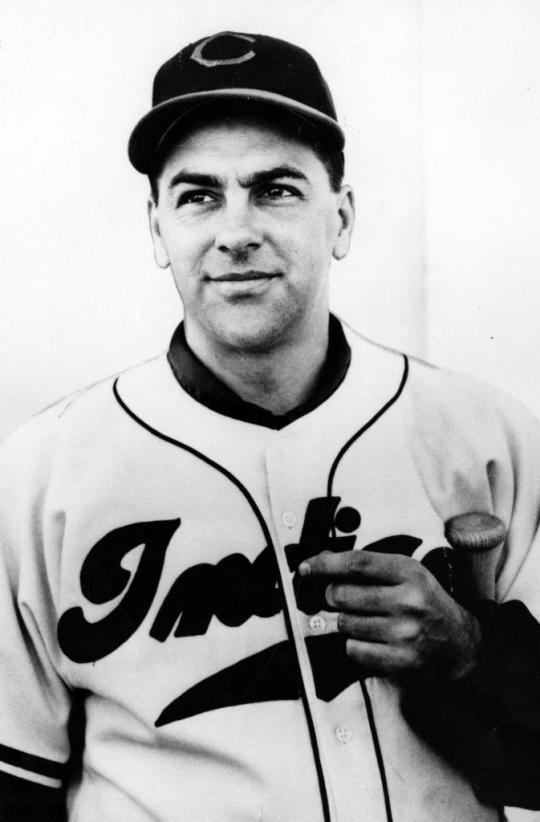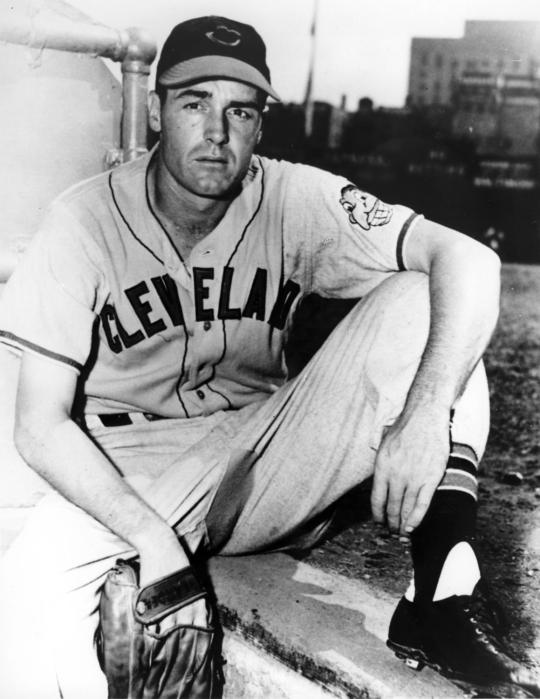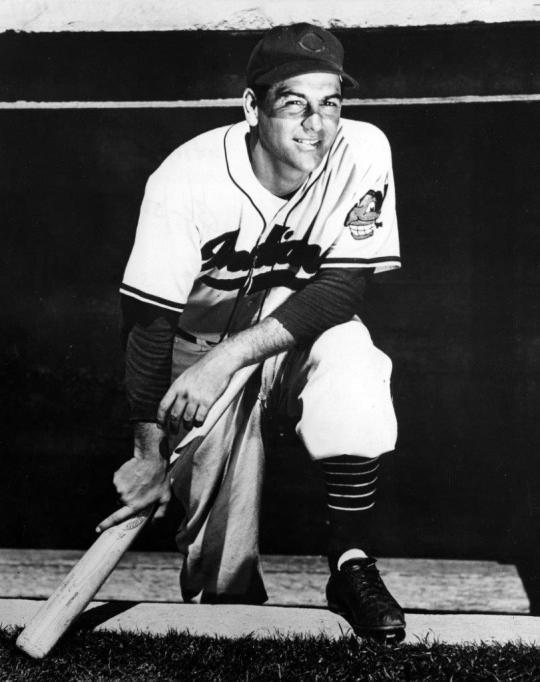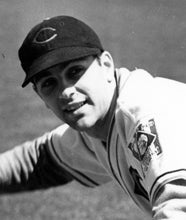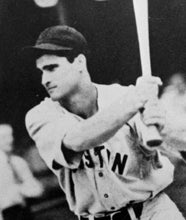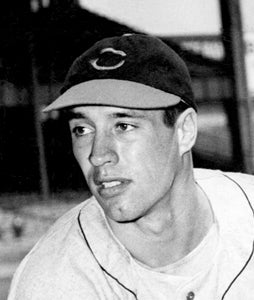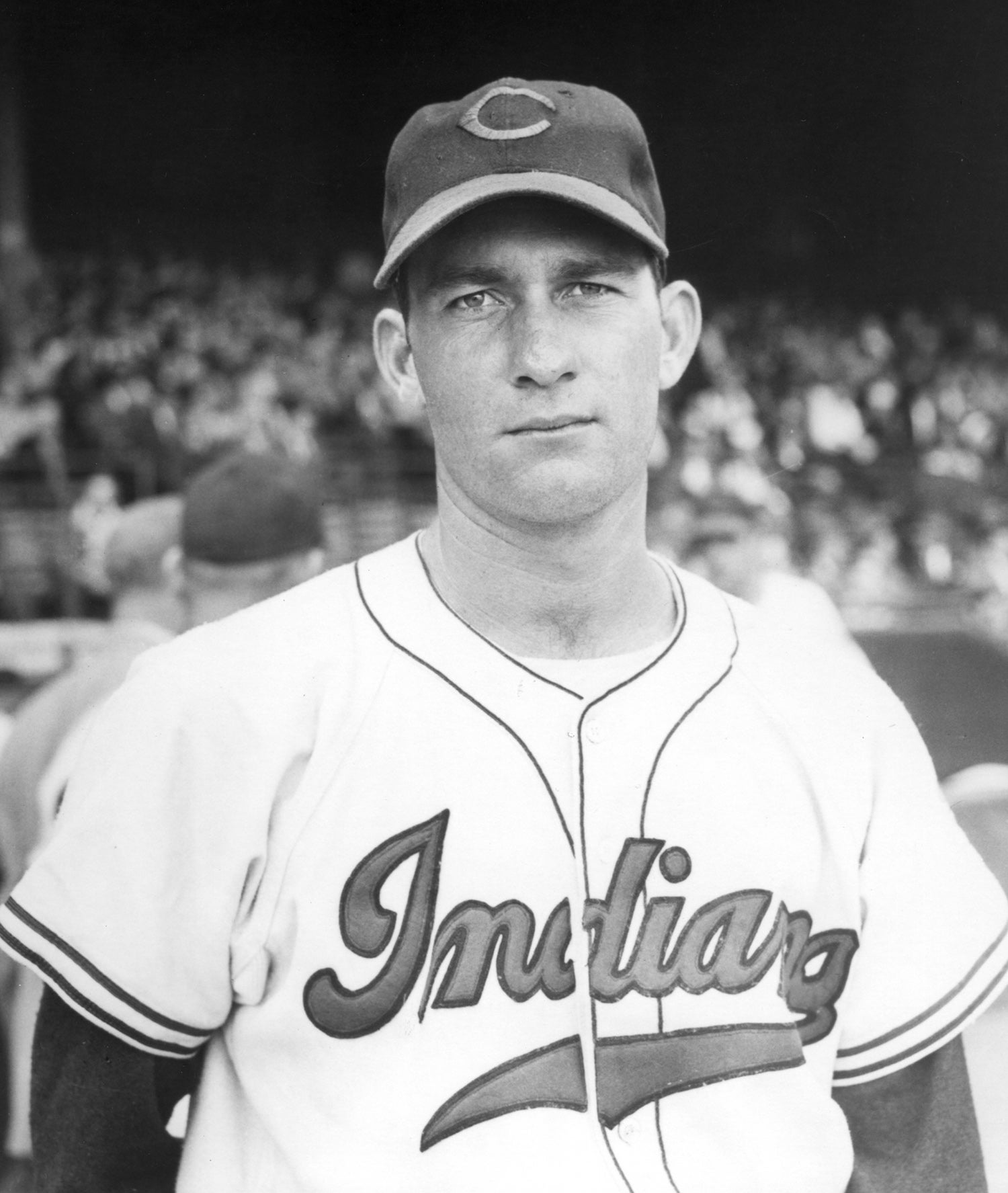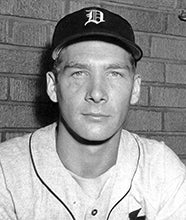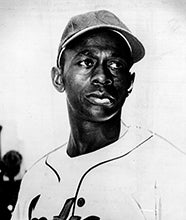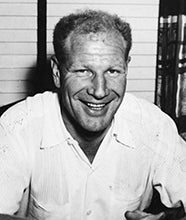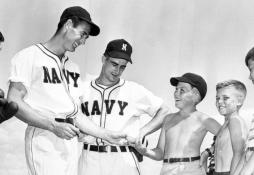- Home
- Our Stories
- Boudreau’s heroics lead Cleveland to title
Boudreau’s heroics lead Cleveland to title
On Sept. 29, 1948, the Cleveland Indians won their 20th game of 26 played that month and, with three to play, maintained a two-game lead over the Red Sox. Just two wins over the Detroit Tigers at Cleveland Stadium would secure the Indians’ first pennant since 1920.
Hall of Fame Membership
There is no simpler, and more essential, way to demonstrate your support than to sign on as a Museum Member.
Official Hall of Fame Merchandise
Hall of Fame Members receive 10% off and FREE standard shipping on all Hall of Fame online store purchases.
The clubs split the first two contests, however, and Bob Feller faltered in Game 154, yielding four runs in just two-and-a-third innings. Hal Newhouser’s one-run complete game secured a 7-1 Detroit victory and forced Cleveland into a first-place tie with Boston. With a pennant and a World Series matchup against the Boston Braves in the balance, the Indians traveled to Fenway Park for a Monday-afternoon tiebreaker on Oct. 4, 1948.
Who pitched the American League’s decisive game was up to player-manager Lou Boudreau, the 30-year-old who’d made his playing job look easy in 1948 – with a .355 batting average, a .453 on-base percentage and 34 doubles, Cleveland’s everyday shortstop would win AL MVP. Boudreau, the manager, had three intriguing options to pitch Monday’s contest.
Feller, despite his uncharacteristic outing the day before, had posted a 3.56 ERA in 280.1 innings and hadn’t lost Boudreau’s faith during a tough stretch of five consecutive losses that June. “We’ll sink or swim with Feller,” Cleveland’s skipper had told The Boston Globe.
Bob Lemon boasted a shiny 2.82 ERA in 293.2 frames of his own, with 20 wins in 43 appearances. That said, consecutive defeats had seen Lemon allow seven earned runs in 14.2 innings.
Then there was the lefty Gene Bearden, 48 hours removed from a Saturday shutout of the Tigers. The 27-year-old, whose 2.53 ERA led the American League and, according to the Globe, “whose flood of knuckle-ball pitches swarm upon the plate like a covey of geese coming into a marsh,” got the nod for Game 155.
Cleveland entered the tiebreaker in a frustrated mood, having squandered its chance at winning the pennant already. “Boudreau’s men arrived in town only at mid-morning, tired-eyed and thoroughly angry with themselves for having blown an apparently safe lead in the closing days of the race,” wrote the Associated Press.
Boudreau helped Cleveland’s cause before his pitcher of choice even toed the rubber, as he hit a first-inning solo shot off Red Sox starter Denny Galehouse.
Boston shortstop Vern Stephens matched the opening blow in the bottom of the first, scoring Johnny Pesky with a single. Ken Keltner put Cleveland back on top with a three-run home run in the fourth, part of a four-run frame for the visitors. Boudreau homered again the next inning.
Bearden allowed just two additional, unearned runs on a Bobby Doerr homer as he hurled a pennant-clinching complete game, working around five hits and five walks to validate Boudreau’s decision. The Indians hoisted Bearden and paraded him off the field as an ERA titleholder and an American League champion. Sporting a new prosthetic leg, club president Bill Veeck ran onto the field to celebrate as well. Boudreau had 13 pitchers available in the bullpen but Bearden needed no help.
“We all seemed interested in only one thing – the great game Bearden was pitching,” reliever “Sad Sam” Zoldak told the Associated Press. Satchel Paige added, “Yes, we had 13 out there today. It was that uneven number – a lucky number. Only [Bob] Lemons and Bob [Feller] got up to throw.”
The two home runs into Fenway’s left-field net highlighted Boudreau’s 4-for-4 afternoon, which also included a walk. With the highest of stakes, Cleveland’s player-manager had performed admirably at both jobs.
“Boudreau, at least for today, was the greatest manager in the world. The youthful pilot, in addition to his four base hits and three runs, fielded flawlessly and set a brilliant pattern for his men,” wrote the Associated Press.
“In the days when sword-waving Generals were the fashion, no army was ever led the way Lou Boudreau led the charge of the Cleveland Indians yesterday,” echoed the Globe.
The Indians celebrated modestly under Boudreau’s leadership, as Game 1 of the World Series – also in Boston, at Braves Stadium – was just two days later.
Fans back in Cleveland, meanwhile, rejoiced over their first pennant in 28 years. Since the 1920 World Series the Indians had finished in second place three times. The other 24 seasons, they’d finished an average of 24 games back in the American League. “Twenty-eight years of longing for the American League championship banner to fly here again burst forth in one giant, pent-up flood of emotion,” wrote the Cincinnati Enquirer. “When Lou Boudreau and company beat the Red Sox a wave of jubilation spread throughout this city of more than a million people.”
Cleveland wouldn’t stop at the pennant – after Feller lost Game 1, 1-0, the Indians took four of five to defeat the Braves and win their second World Series Championship. Boudreau went 6-for-26 with four doubles and three RBI in the series, while Bearden threw a shutout in Game 3 and saved the clinching Game 6.
Boudreau would play two more seasons in Cleveland before joining the Red Sox for two final campaigns. He retired after the 1952 season and was inducted into the Hall of Fame in 1970.
Justin Alpert was the 2023 social media intern in the Hall of Fame’s Frank and Peggy Steele Internship Program for Leadership Development
Related Stories
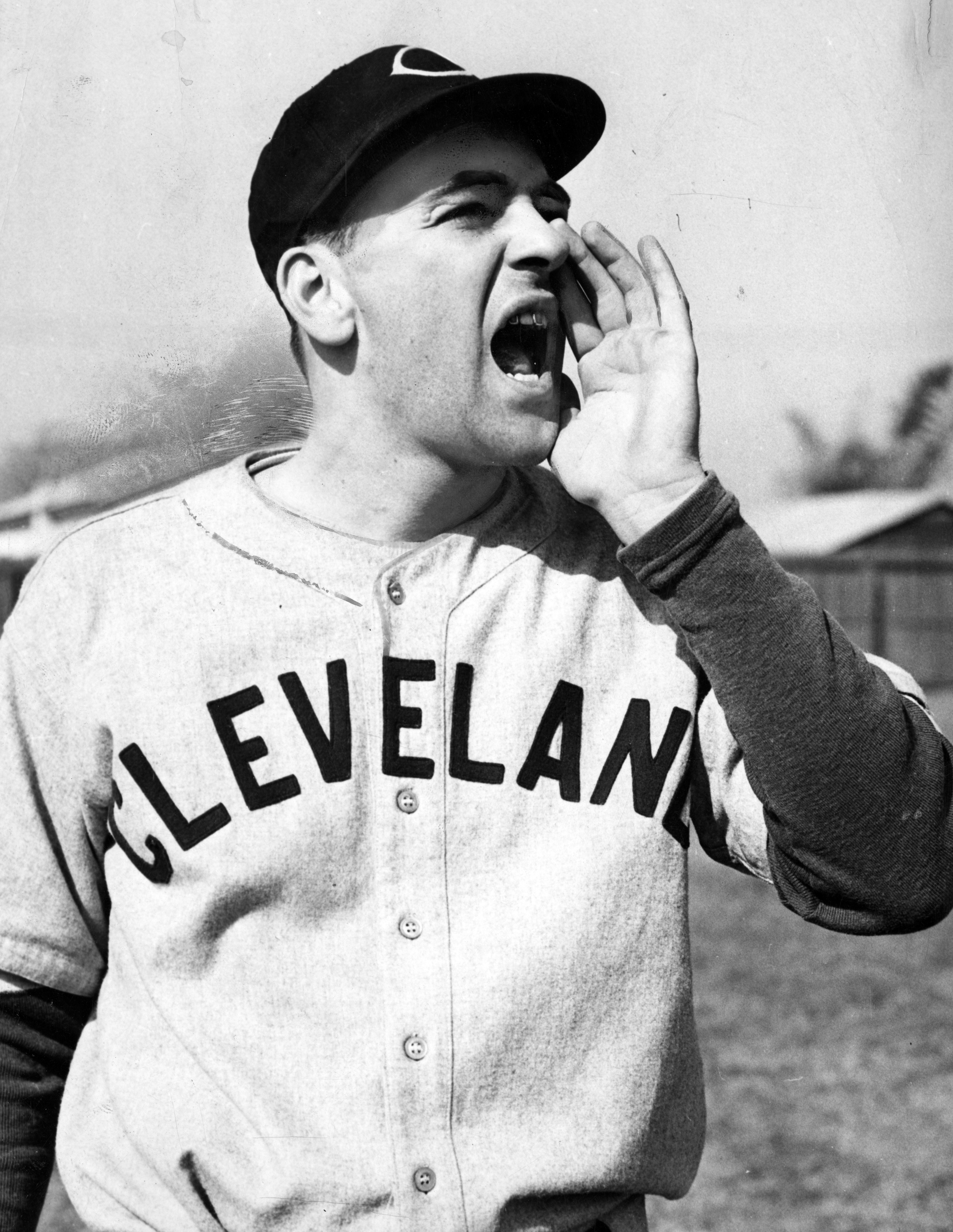
Lou Boudreau Hits a Lead-Off Home Run in All-Star Game
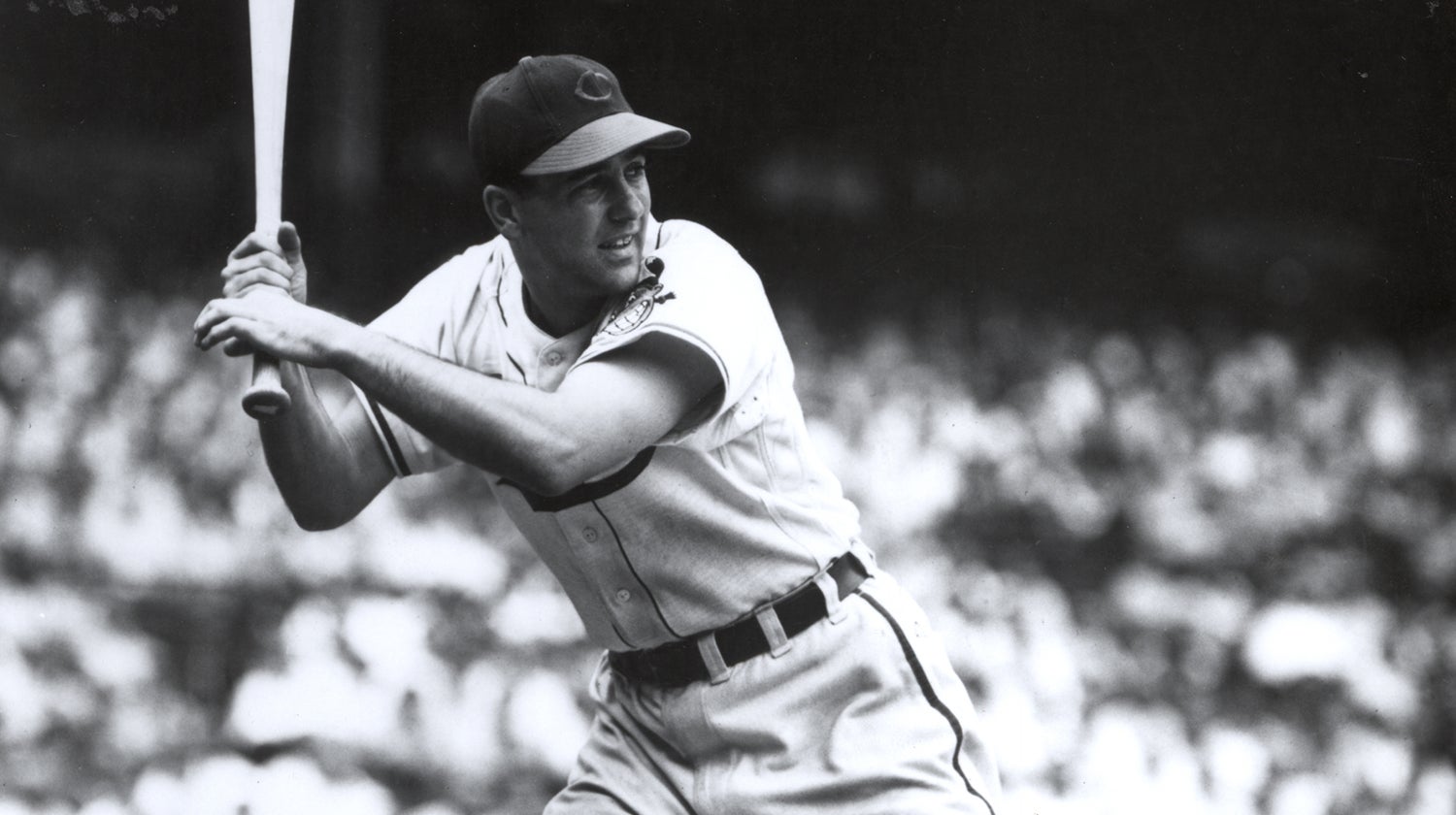
Boudreau’s 1948 season a hit on the field and in the dugout
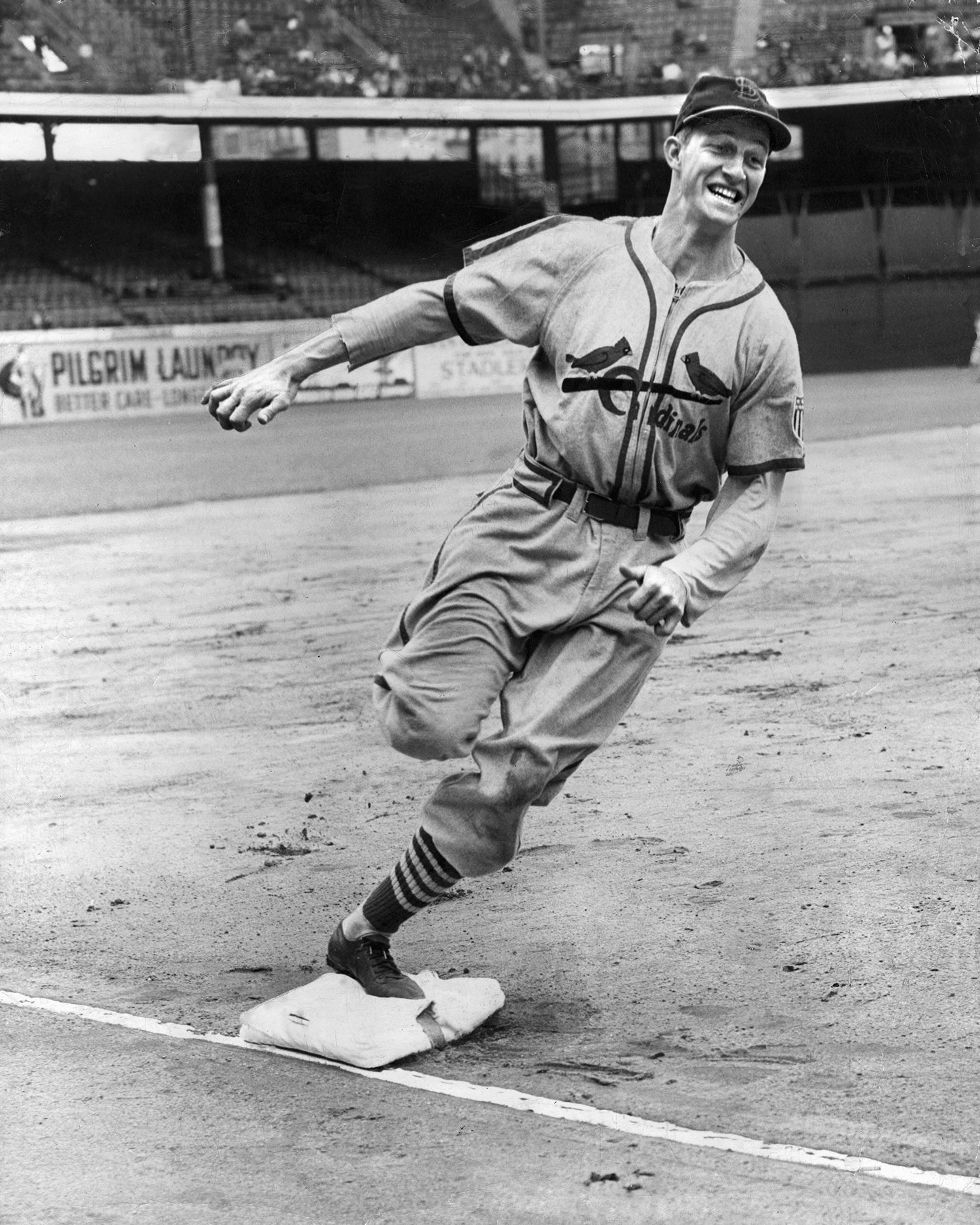
Musial’s historic 1948 season nets him third NL MVP
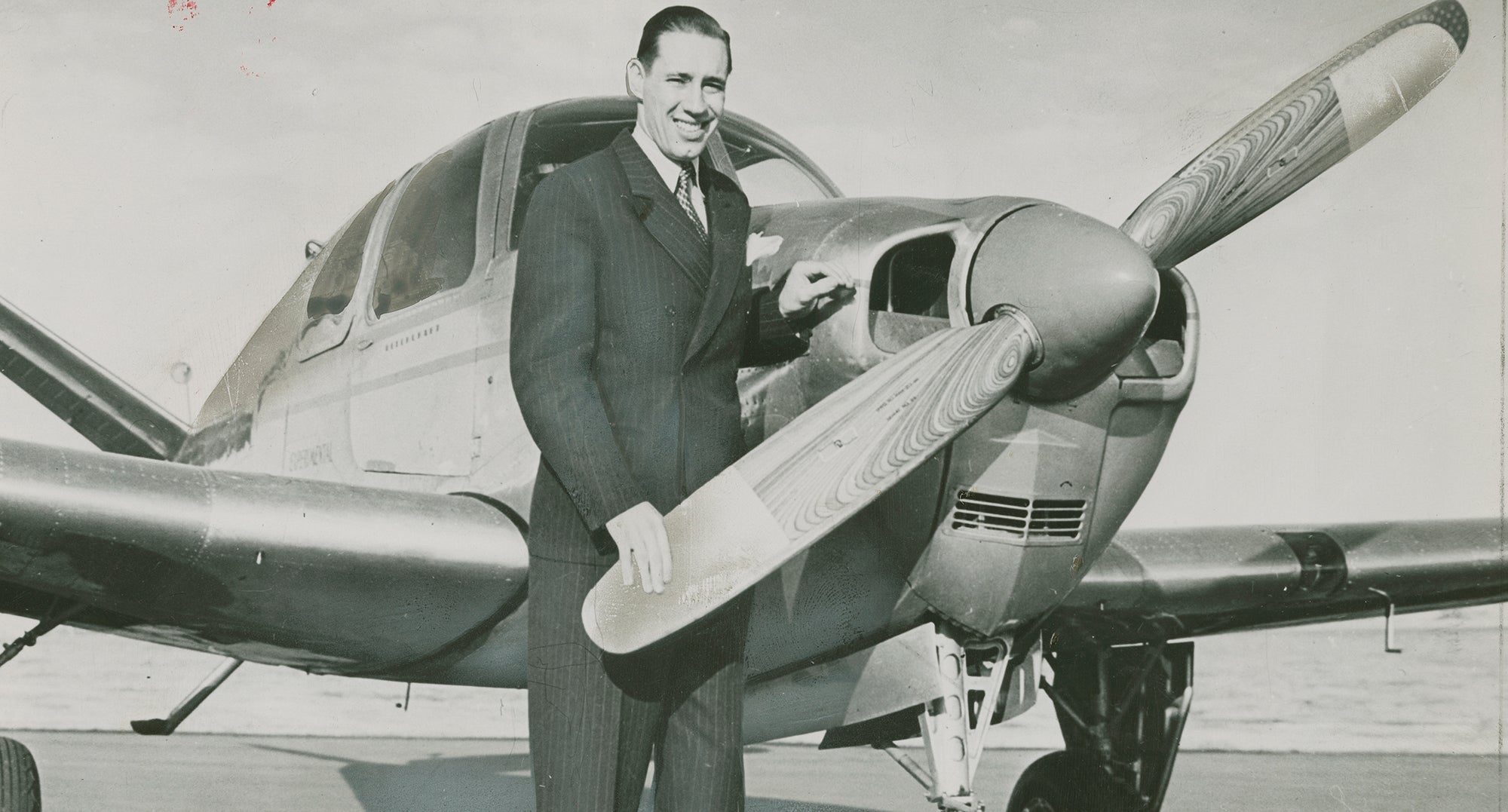
Feller, Paige teamed up for 1946 barnstorming tour
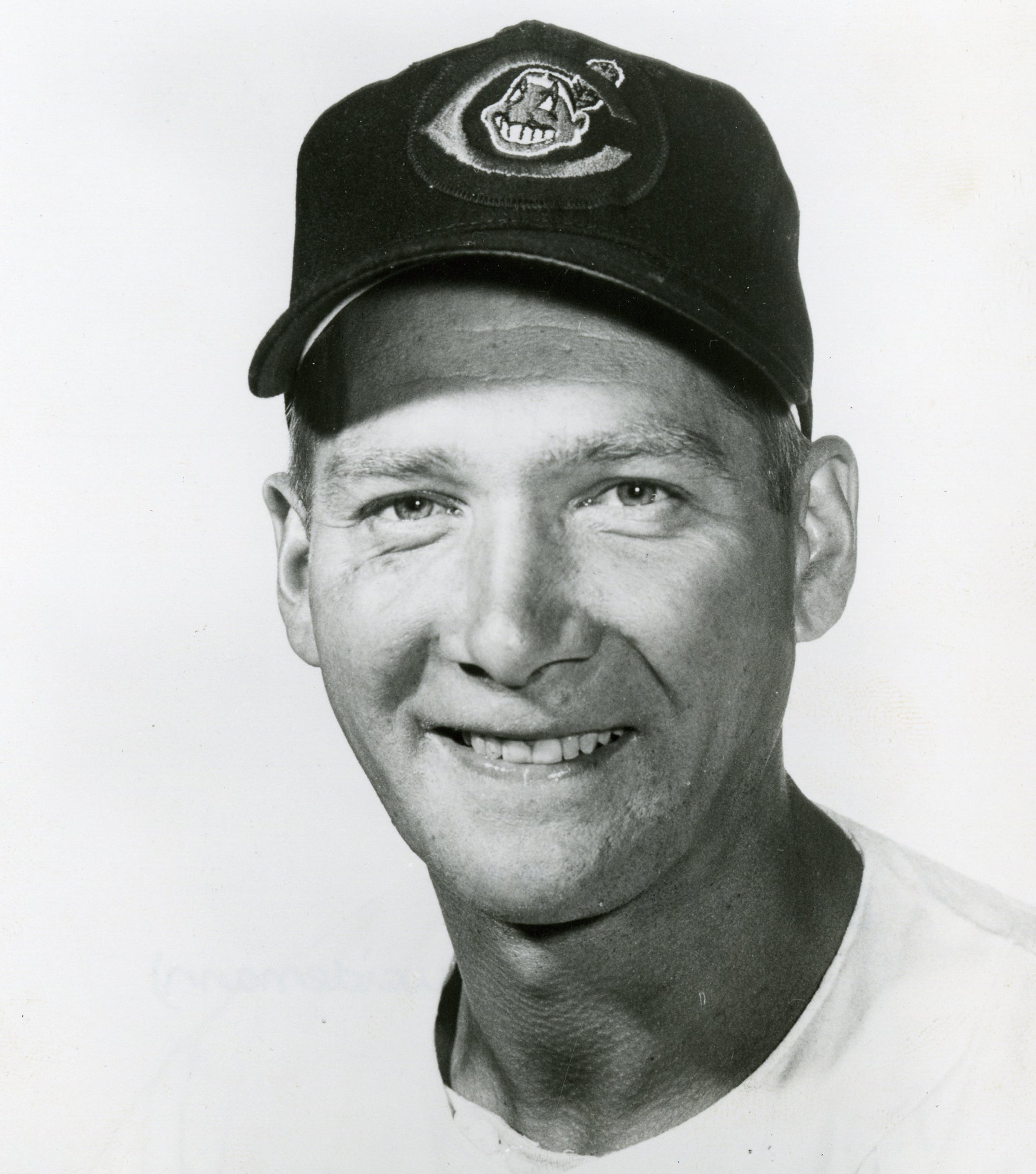
Newhouser helps lift Cleveland to pennant in career revival
Related Stories
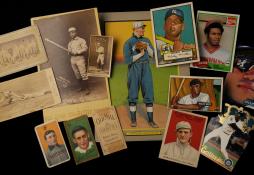
#CardCorner: 1969 Topps Nate Colbert
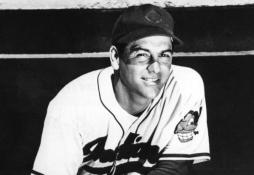
Boudreau’s heroics lead Cleveland to title

#CardCorner: 1987 Topps Ron Kittle
Hall to Honor Curt Flood’s Legacy, World War II Players during Awards Presentation at HOF Weekend
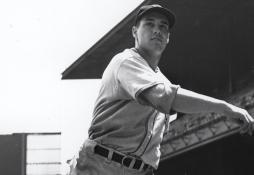
Open and shut down

Boudreau’s heroics lead Cleveland to title
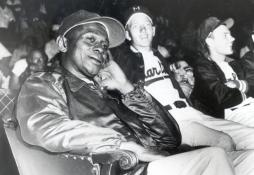
Satch's Swan Song
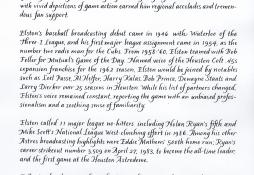
The Hall of Fame Remembers Gene Elston

#CardCorner: 1971 Topps Richie Scheinblum
Wendell Smith Chronology
01.01.2023
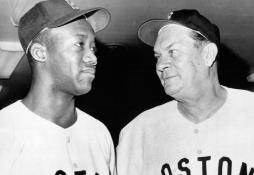
With deliberate speed, the 1950s saw the reintegration of the white major leagues
01.01.2023
Finding Aid for BA MSS 105 (Joint Major League Meetings)
01.01.2023

